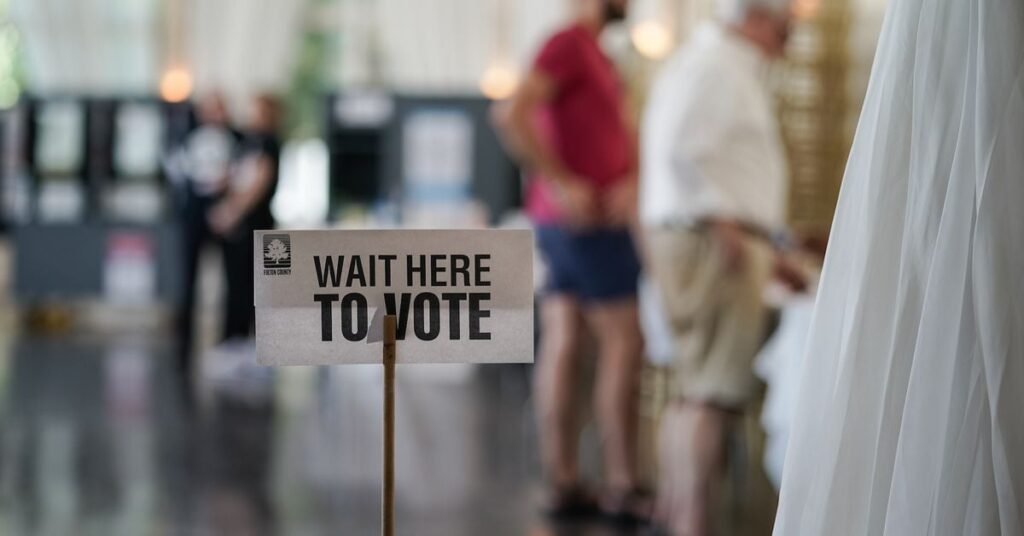
Kalshi,
a
U.S.-regulated
prediction
market
platform,
won
its
federal
lawsuit
against
the
Commodity
Futures
Trading
Commission
over
a
plan
to
offer
contracts
on
which
party
will
control
each
house
of
Congress
after
the
November
election.
Although
the
CFTC
could
appeal,
Kalshi,
which
had
been
locked
out
of
this
year’s
election
betting
boom
while
the
case
was
pending,
can
now
grab
a
sliver
of
that
action
in
the
last
two
months
before
the
election.
“We
did
it!”
the
company
said
in
a
notice
on
its
website
Friday.
“U.S.
election
markets
are
coming
to
Kalshi.”
More
broadly,
the
ruling
represents
a
victory
for
advocates
of
prediction
markets,
in
which
traders
bet
on
the
outcomes
of
real-world
events
ranging
from
elections
to
album
sales
to
temperature
increases.
Prediction
markets
are
popular
in
crypto
circles,
and
although
Kalshi
does
not
use
cryptocurrency,
the
crypto
industry
has
been
watching
the
case
closely;
VC
firm
Paradigm
filed
a
friend-of-the-court
brief
supporting
the
plaintiff.
Last
year,
the
CFTC
forbade
Kalshi
from
listing
the
Congressional
control
contracts,
on
the
grounds
that
they
would
amount
to
unlawful
gaming
and
would
be
“contrary
to
the
public
interest.”
Kalshi
then
sued,
calling
the
regulator’s
decision
“arbitrary
[and]
capricious.”
In
a
ruling
handed
down
Friday,
Judge
Jia
M.
Cobb,
of
the
U.S.
District
Court
of
the
District
of
Columbia,
sided
with
Kalshi.
“For
the
reasons
stated
in
the
Court’s
forthcoming
memorandum
opinion,
the
Court
GRANTS
Plaintiff’s
motion
for
summary
judgment
…
and
DENIES
Defendant’s
cross
motion
for
summary
judgment,”
Cobb
wrote.
“Defendant’s
September
22,
2023
order
prohibiting
Plaintiff
from
listing
its
congressional
control
contracts
for
trading
is
hereby
VACATED.”
Proponents
say
prediction
markets
beat
polls
and
pundits
as
a
method
of
forecasting
events
and
gauging
sentiment,
because
participants
have
skin
in
the
game
and
so
are
incentivized
to
do
thorough
research
and
express
their
honest
opinions.
This
year’s
prediction
market
breakout
success,
Polymarket,
runs
on
crypto
rails
and
is
riding
high
on
excitement
about
election
betting.
In
August,
the
site
logged
over
$470
million
in
volume,
a
record,
according
to
Dune
Analytics
data;
the
lion’s
share
of
that
was
traded
on
election
contracts.
Polymarket
is
reaping
the
benefits
of
the
U.S.
election
despite
being
barred
from
doing
business
with
U.S.
residents
under
a
regulatory
settlement
with
the
CFTC.
Bets
on
Polymarket
are
written
into
smart
contracts
on
a
blockchain
and
settled
in
USDC,
a
stablecoin,
or
cryptocurrency
that
trades
1:1
for
dollars.
Kalshi,
by
contrast,
does
business
only
in
the
U.S.
and
settles
trades
in
normal
greenbacks.
However,
every
contract
it
lists
is
subject
to
approval
or
second-guessing
by
the
CFTC,
which
is
why
it
had
to
take
the
regulator
to
court
over
the
Congressional
control
contract.
Another
fight
looms,
as
the
CFTC
weighs
a
proposed
rule
to
bar
any
of
the
entities
it
regulates
from
offering
contracts
on
political
contests,
in
part
over
concerns
they
would
undermine
the
integrity
of
elections.